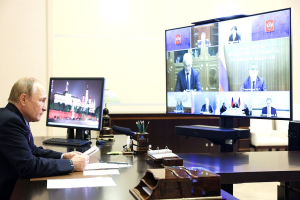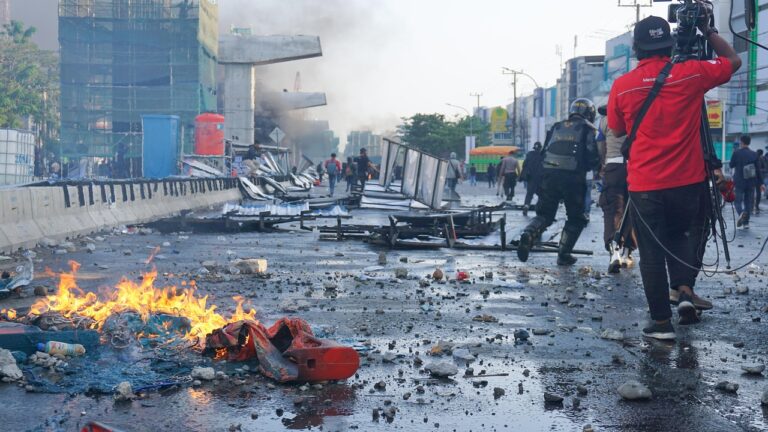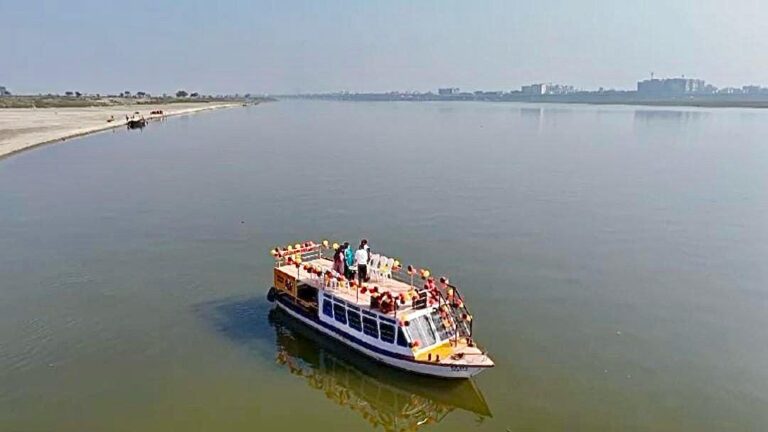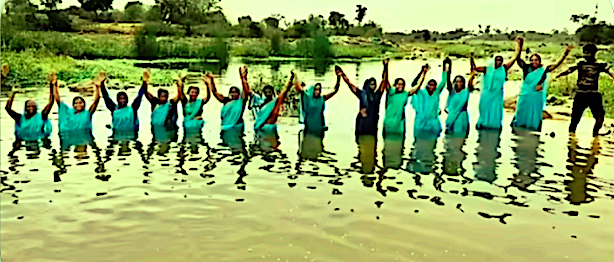
Russian President Vladimir Putin during the meeting on economic issues via videoconference today.
Moscow: Sanctions and war are taking their toll on the Russian economy. The inflation continues to remain double-digit although it shows a declining trend. Last week it was 13.5 per cent. However, Russian President Vladimir Putin today tried to put up a brave face and referred to other European economies grappling with high inflation rates. At a high-level meeting on economic issues here today, he cited the examples of a 10 per cent inflation rate in the euro area, 10.9 per cent in Germany, 17.1 per cent in the Netherlands, 22.4 per cent in Latvia, 22.5 per cent in Lithuania, and 24.2 per cent in Estonia.
Consumer demand remained weak in Russia and in August, as in July 2022, retail sales in Russia decreased by 8.8 per cent in real terms, and in September, this trend decreased even further. Besides, in the last week of the month, trade declined even in nominal terms.
“We will have to talk about this topic separately. I would like to ask you to report on what you propose to do to ensure the stable operation of the consumer sector and its gradual growth,” Putin said at the meeting via videoconference, which was attended by the Chief of Staff of the Presidential Executive Office Anton Vaino, First Deputy Prime Minister Andrei Belousov, First Deputy Chief of Staff of the Presidential Executive Office Sergei Kiriyenko, Deputy Prime Minister Tatyana Golikova, Deputy Prime Minister – Chief of the Government Staff Dmitry Grigorenko, Deputy Prime Minister Marat Khusnullin, Presidential Aide Maxim Oreshkin, Economic Development Minister Maxim Reshetnikov, Finance Minister Anton Siluanov, and Central Bank Governor Elvira Nabiullina.
For the last four months, Russia’s industrial production too had shown a decline but Putin claimed now it had returned to the level of 2021.
Still, the export-oriented sectors of the Russian economy remained under pressure, primarily those focused on European countries that gave up Russian supplies. Putin, though, claimed that these European countries were more impacted by sanctions on Russia as they were now forced to overpay for a number of goods, including oil and gas, and metals among others.
However, the Russian exporters, in turn, too, are compelled to switch to other markets, and the process is not fast as it takes time to build new cooperation and logistics chains.
Already the Russian car industry as well as metal production face the “greatest challenges” but Putin today claimed they were gradually recovering.
Putin as of now seems to put his bet on agriculture which showed “good dynamics” with a 4.6 per cent increase in January-August 2022.
He also pins hopes on construction which he said was improving and had grown by 7.4 per cent compared to the same period last year. “Such growth in construction should also pull up other related industries and give them an additional impetus,” he said.
Putin today pointed out that the budgets in Russia were also being executed steadily. From January-September, the surplus of Russia’s consolidated budget amounted to about 1.4 trillion rubles. At the same time, non-oil and gas revenues in the third quarter were higher than expected, both at the federal and regional levels.
However, concerned with the negative trends in the economy, the Russian President sought to draw the attention of the Government and the Bank of Russia to the need to ensure steady macroeconomic recovery. “It is important to understand that the sanctions pressure on Russia will only increase. We need to have flexible, effective action plans for the short and medium term, and we need to implement them consistently,” he said.
Photo: Russian President Vladimir Putin during the meeting on economic issues via videoconference today. Source: Kremlin
– global bihari bureau





